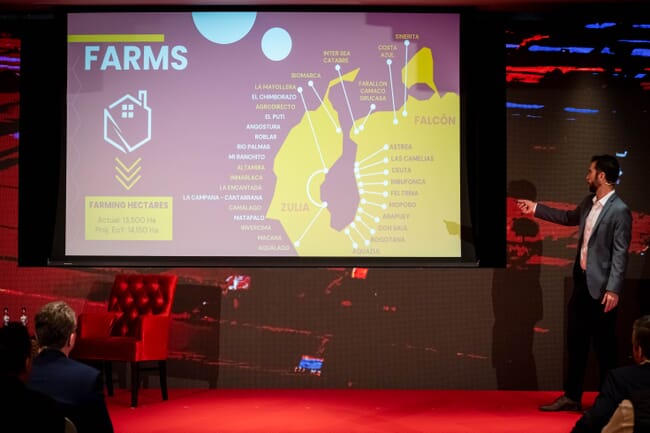
© Pierre Banoori
José Enrique Rincón shares the management of Grupo Lamar with his sons Juan Diego and José Enrique junior, who were also accused of being behind the conspiratorial acts by Venezuela’s minister of the interior and justice, Diosdado Cabello.
Rincón started in the shrimp sector in the 1990s and the company began to grow rapidly in the late 2010s - from a production of 10,000 tonnes in 2018 to 60,000 in 2023, employing 10,000 people.
The company has 13,000 hectares of farms; three feed mills with the capacity to produce 18,400 tonnes of feed monthly; five hatcheries and four processing plants.
Speaking at last year’s Global Shrimp Forum, José Enrique junior outlined that they had ambitions to hit the 100,000 tonne mark.
“We have the capacity, we have the farms, we have the infrastructure. Now we just have to get to work and make that a reality,” he said.
However, he also flagged up the despite the difficulties of doing business in Venezuela.
“The World Bank publishes a list of ease of doing business and Venezuela comes third to last. I can tell you we live it every day. It’s manageable, but it’s our reality,” he reflected.
According to Cabello, Rincón and his sons left the country when they learned of the investigation against them.
Industry reaction
One respected shrimp commentator told The Fish Site that the development was likely to be disastrous for Grupo Lamar – which reportedly has $50 million worth of shrimp in their ponds, and $15 million of them in their cold stores. However, they added, it was likely to bring benefits to shrimp exporters in other countries, notably Ecuador.
Indeed, Lamar export 80 percent of their product to Europe, which is currently the most buoyant export market for shrimp in the world.


